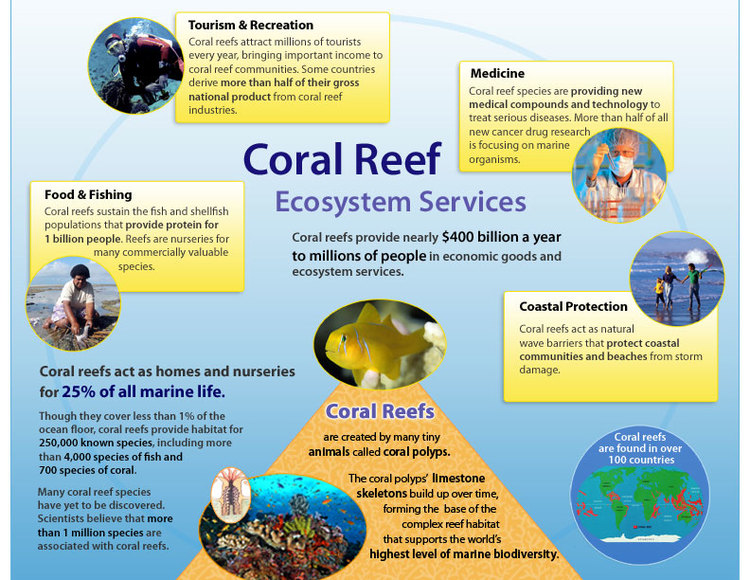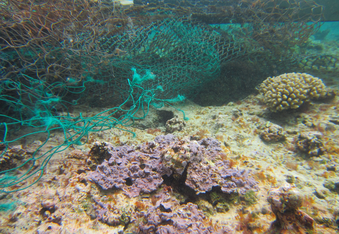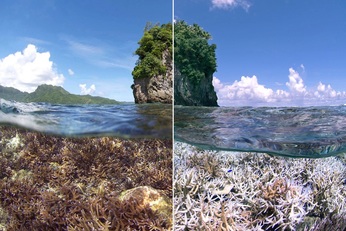Coral Reefs: Why Should Humans Care?
Coral reefs are among the most biologically diverse and productive ecosystems on Earth. These ecosystems provide many goods and services such as seafood, shoreline protection, maintenance of biodiversity, medicinal products, and massive economic boosts to the tourism and recreation industries, totaling roughly $375 billion in worth each year to millions of people (see diagram below).
Threats to Coral Reef Ecosystems
According to the Status of Coral Reefs of the World: 2008, 19 percent of the world's reefs are effectively lost, 15 percent are seriously threatened with loss in the next 10-20 years, and 20 percent are under threat of loss in the next 20-40 years. Coupled with coral loss, more than 25 percent of the world’s reefs are at high risk, and just under 33 percent of these habitats are at moderate risk, from human disturbance. These coral reef threats due to human activity are as follows:
PRIMNM Coral Reefs & ThreatsAs coral reef ecosystems deteriorate, it is necessary that we understand their response to, and recovery from various human impacts. Studies in the PRIMNM present a unique opportunity to understand ecological responses to climate change and ocean acidification in the absence of human activities, such as overfishing and land-based pollution. These human impacts are common in many other coral reefs around the world. Although the coral reefs of the PRIMNM are considered more "pristine", they still face significant degradation from global change, such as rising sea temperatures and ocean acidification.
|
Headline Photo Source: NOAA, Tate Wester
Coral Reefs: Why Should We Care? -- Content Source
Costanza, Robert et al. "The Value of the World's Ecosystem Services". Nature, Volume 387. 15 May 1997.
Threats to Coral Reef Ecosystems -- Content Source
1) Wilkinson, C. 2008. Status of the Coral Reefs of the World: 2008. Townsville, Australia. Global Coral Reef Monitoring Network and Reef and Rainforest Research Centre.
2) Bryant, Dirk et al. 1998, Reefs At Risk: A Map-Based Indicator of Threats to the World's Coral Reefs. World Resources Institute.
Coral Reefs: Why Should We Care? -- Content Source
Costanza, Robert et al. "The Value of the World's Ecosystem Services". Nature, Volume 387. 15 May 1997.
Threats to Coral Reef Ecosystems -- Content Source
1) Wilkinson, C. 2008. Status of the Coral Reefs of the World: 2008. Townsville, Australia. Global Coral Reef Monitoring Network and Reef and Rainforest Research Centre.
2) Bryant, Dirk et al. 1998, Reefs At Risk: A Map-Based Indicator of Threats to the World's Coral Reefs. World Resources Institute.



